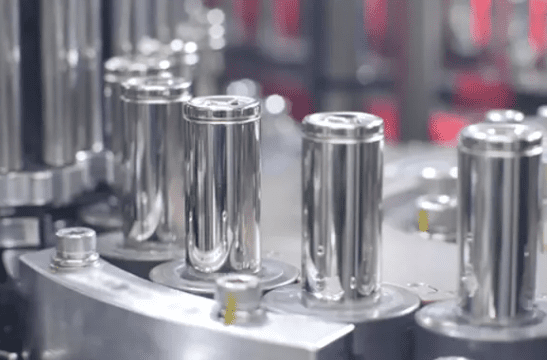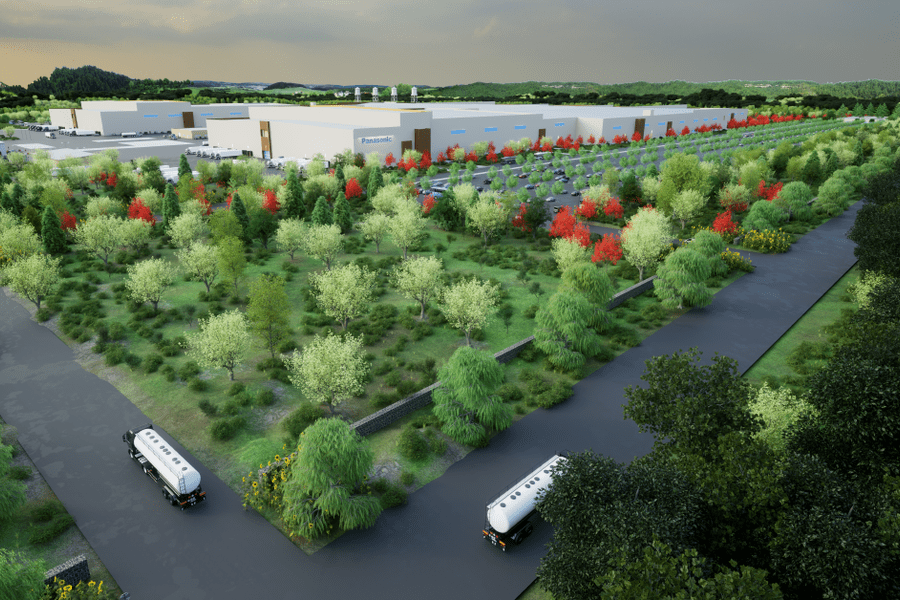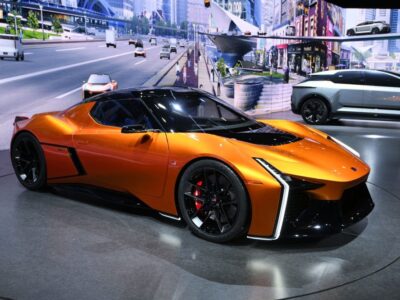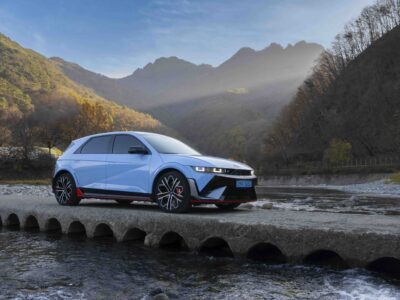Kansas has seen a boom in electric vehicle (EV) investments. According to EDF’s and WSP’s U.S. Electric Vehicle Manufacturing Investments and Jobs report, it has received $4 billion in the last eight years alone.
Those investments are driving the Sunflower State’s economy by adding thousands of new clean energy jobs. Panasonic Energy is adding to the growth with plans to build the largest EV battery manufacturing facility in the U.S. in De Soto, which will bring in as many as 20,000 additional construction and supplier jobs. The plant is expected to begin production in March 2025.
“This $4 billion investment will be the largest single economic investment in the state’s history, so the benefits are vast,” De Soto Mayor Rick Walker told The Business Download: Clean Energy. “It will bring jobs to our city and the region. Now, most young people who grow up in De Soto have to find work elsewhere.”
“This facility will provide good-paying, advanced manufacturing jobs in a growing industry,” he continued.
“[This kind of] economic development helps a city have funds to enhance our quality of life. We anticipate additional funds for amenities like parks, trails, and more community-focused programming and events, among other things.”
The state-of-the-art Panasonic facility will supply lithium-ion batteries worldwide and accelerate the future of EV innovation globally.

Photo Courtesy Panasonic
“With the increased electrification of the automotive market, expanding battery production in the U.S. is critical to help meet demand,” Kazuo Tadanobu, Panasonic Energy CEO, said in a statement. “Given our leading technology and depth of experience, we aim to continue driving growth of the lithium-ion battery industry and accelerating towards a net-zero emissions future.”
Mayor Walker also notes that the facility will revive a long-dormant part of De Soto, the former Sunflower Army Ammunition Plant.
“It’s now called Astra Enterprise Park, and it sat dormant for decades,” he said. “Now, we’ll re-ignite our economy by bringing the area back to life. It will play a role in re-onshoring manufacturing jobs and help De Soto become a jobs hub for the region.”
Video Courtesy: PNA Marketing, Digital & Comms
“We feel very fortunate to have a green energy facility come to our town,” Walker added. “From an economic standpoint, this is a growing industry. Demand for EVs and the batteries that fuel them will only grow, so we’re supporting a sustainable business that will bring long-lasting benefits to our community.”
“They’re not going away. Also, the land it will be on used to make smokeless gunpowder for weapons, which has led to decades of environmental remediation,” he continued.
“We’re thrilled to welcome a facility dedicated to producing a clean-energy product, one that will benefit our residents, the region, and the country for years to come.”
Kansas is continuing to welcome more and more clean jobs to the state. According to “KC News,” the Kansas City region is the third fastest-growing tech market in the U.S. for its engineering, technology, and automotive manufacturing. The Kansas City market alone employs nearly 21,000 workers who contribute to the $19 billion transportation manufacturing industry, opening windows to more sustainable jobs for the future.

Photo Courtesy Panasonic
“Great news today! Panasonic announced it chose Kansas as the location for a brand new battery plant. Billions of dollars in investments and thousands of great jobs are on the way to Kansas,” shared Senator Roger Marshall.
Kansas Gov. Laura Kelly added in a separate statement, “As the largest private investment in Kansas history and one of the largest EV battery manufacturing plants of its kind in the country, this project will be transformative for our state’s economy, providing in total 8,000 high-quality jobs that will help more Kansans create better lives for themselves and their children. Winning this project has shown that Kansas has what it takes to compete on a global scale — and that our pro-business climate is driving the technological innovation needed to achieve a more prosperous and sustainable future.”





